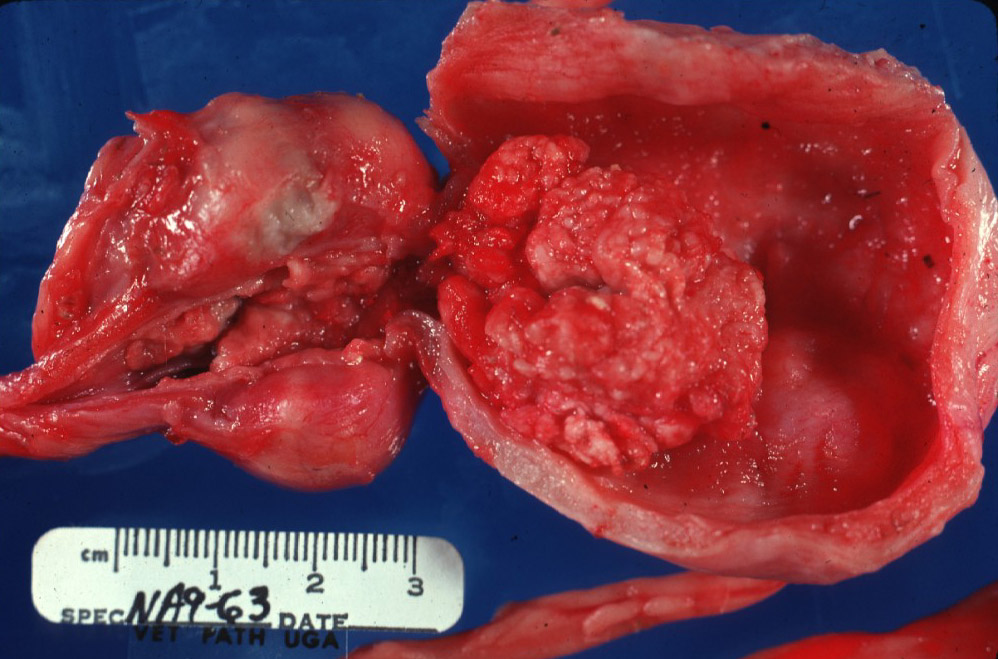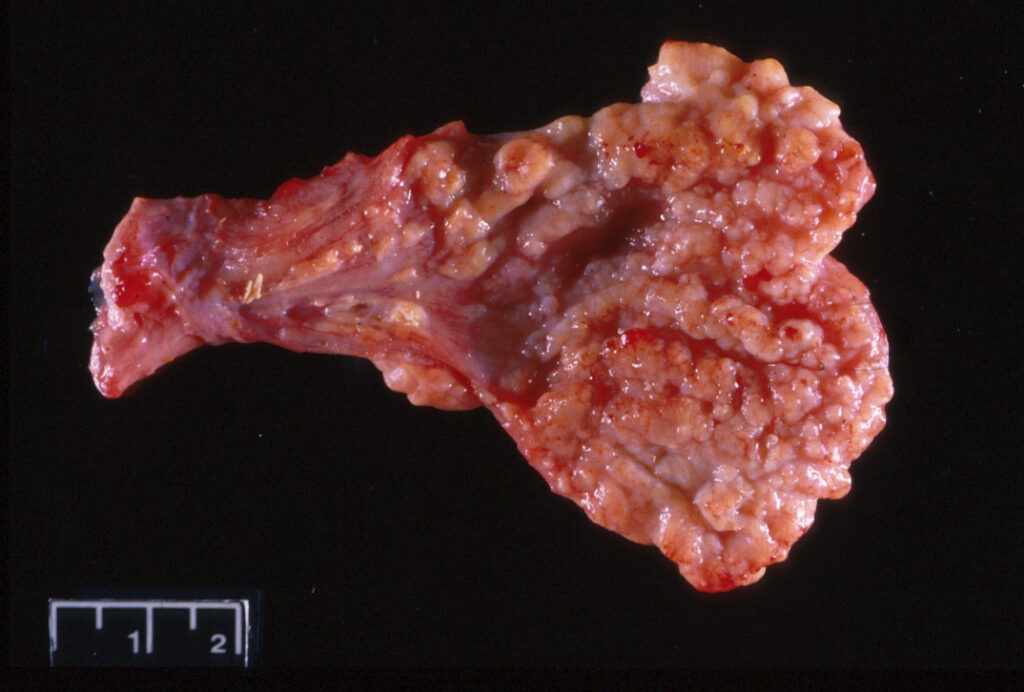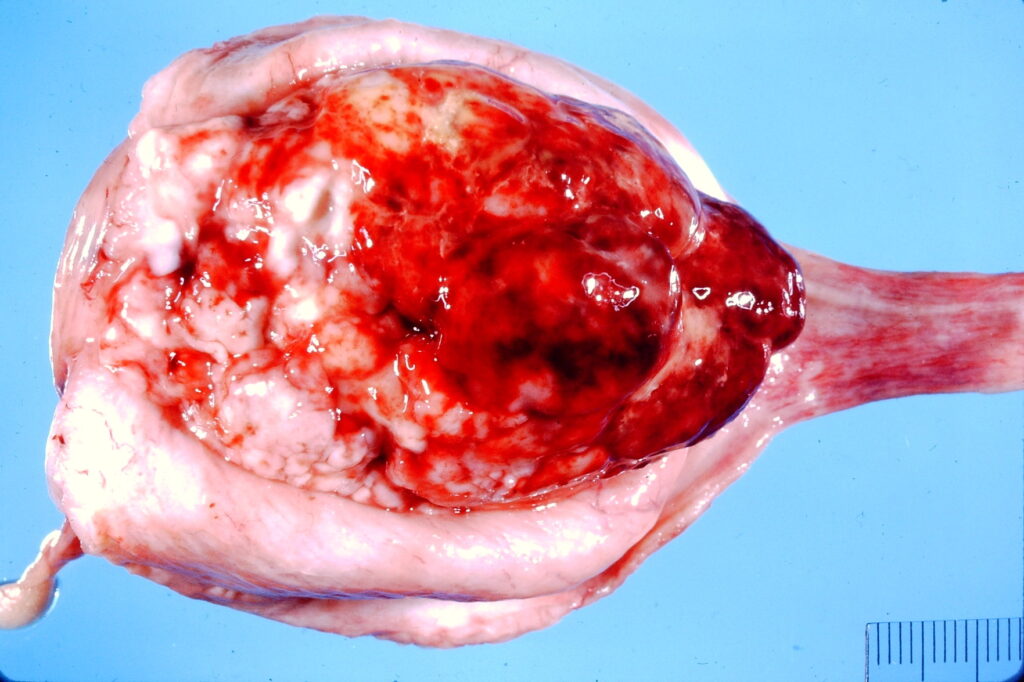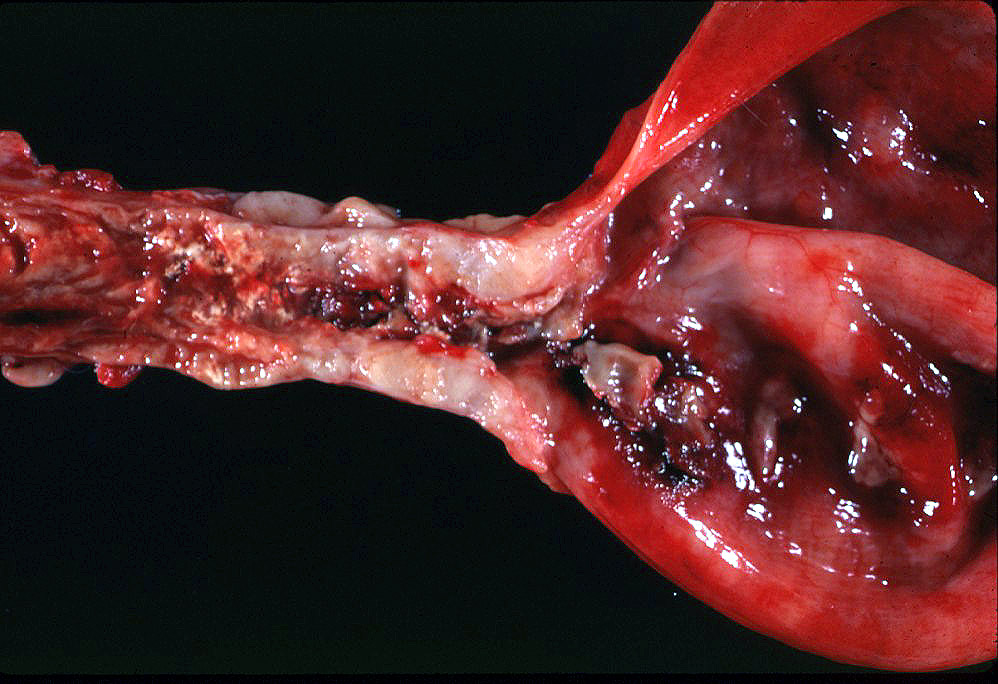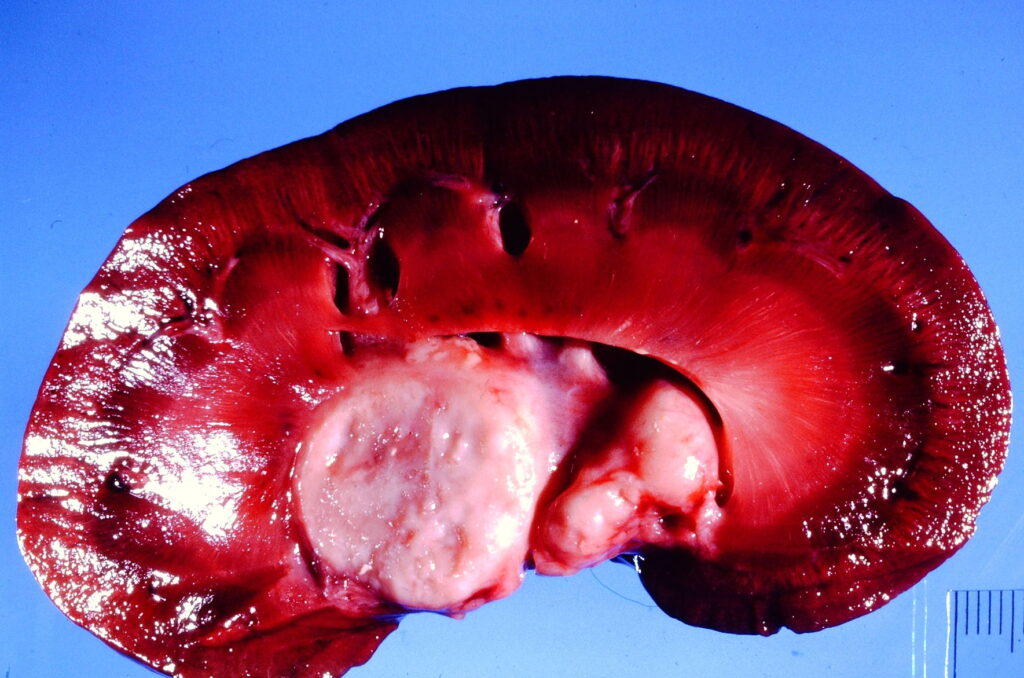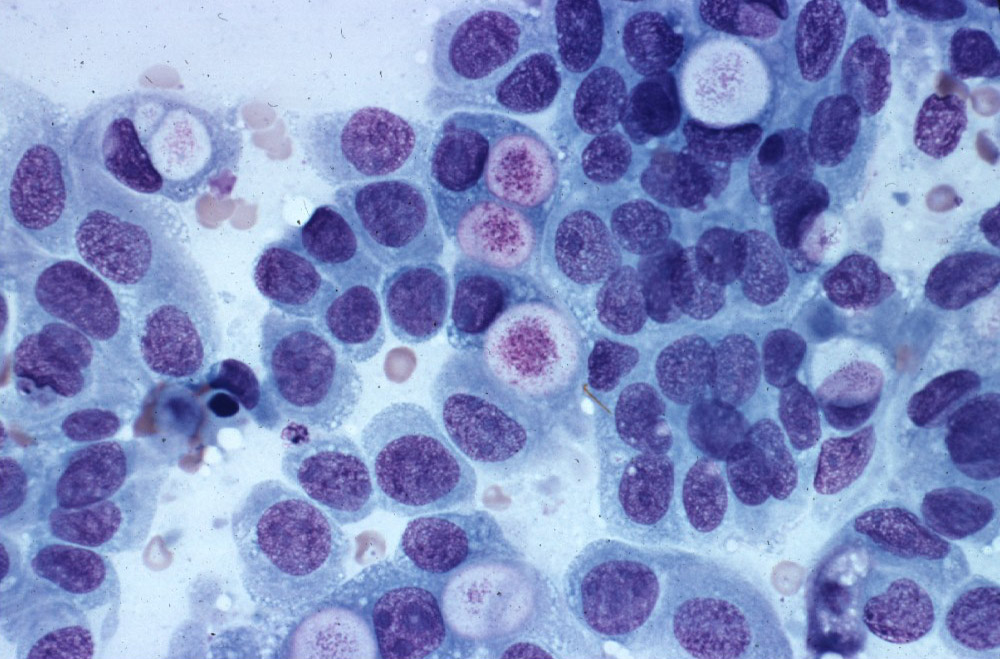Today’s path rounds are on 𝐭𝐫𝐚𝐧𝐬𝐢𝐭𝐢𝐨𝐧𝐚𝐥 𝐜𝐞𝐥𝐥 𝐜𝐚𝐫𝐜𝐢𝐧𝐨𝐦𝐚𝐬! This post is inspired by a case I had this week ![]()
𝐖𝐡𝐚𝐭 𝐢𝐬 𝐢𝐭?
𝐓𝐫𝐚𝐧𝐬𝐢𝐭𝐢𝐨𝐧𝐚𝐥 𝐜𝐞𝐥𝐥 𝐜𝐚𝐫𝐜𝐢𝐧𝐨𝐦𝐚𝐬 are malignant tumours of the 𝐭𝐫𝐚𝐧𝐬𝐢𝐭𝐢𝐨𝐧𝐚𝐥 𝐞𝐩𝐢𝐭𝐡𝐞𝐥𝐢𝐮𝐦, a specialized epithelium found in the bladder, ureters and urethra.
𝐖𝐡𝐨 𝐠𝐞𝐭𝐬 𝐢𝐭?
Any species can get this, however we most commonly see it in dogs and cats.
𝐖𝐡𝐚𝐭 𝐜𝐚𝐮𝐬𝐞𝐬 𝐢𝐭?
Like most tumours, the exact cause of the tumour is often unknown. However, it is thought that the bladder may be predisposed to developing tumours due to the length of time urine sits in the bladder, allowing the bladder cells to be exposed to 𝐜𝐚𝐫𝐜𝐢𝐧𝐨𝐠𝐞𝐧𝐬 (cancer causing agents) in the urine for a prolonged period. There are a variety of potential carcinogens that can be excreted in the urine, but irritation by 𝐮𝐫𝐨𝐥𝐢𝐭𝐡𝐬 (bladder stones), viruses and toxins can also predispose animals to transitional cell carcinomas.
𝐖𝐡𝐲 𝐢𝐬 𝐭𝐡𝐢𝐬 𝐚 𝐩𝐫𝐨𝐛𝐥𝐞𝐦?
The first issue with these tumours is that they can obstruct the normal flow of urine, leading to difficult and painful urination. They also can predispose animals to developing 𝐮𝐫𝐢𝐧𝐚𝐫𝐲 𝐭𝐫𝐚𝐜𝐭 𝐢𝐧𝐟𝐞𝐜𝐭𝐢𝐨𝐧𝐬 by giving the bacteria a roughened surface to attach to. Additionally, these tumours are malignant, and they have a tendency to 𝐦𝐞𝐭𝐚𝐬𝐭𝐚𝐬𝐢𝐳𝐞 to other organs, causing further issues.
𝐇𝐨𝐰 𝐢𝐬 𝐢𝐭 𝐝𝐢𝐚𝐠𝐧𝐨𝐬𝐞𝐝?
These tumours are often suspected initially based on clinical signs. On 𝐮𝐫𝐢𝐧𝐚𝐥𝐲𝐬𝐢𝐬 (looking at urine under a microscope), tumour cells can sometimes be seen. To confirm the presence of a tumour, ultrasound is often used. From there, the veterinarian will often do a 𝐛𝐢𝐨𝐩𝐬𝐲 (removal of tissue) or 𝐟𝐢𝐧𝐞 𝐧𝐞𝐞𝐝𝐥𝐞 𝐚𝐬𝐩𝐢𝐫𝐚𝐭𝐞 (sampling cells with a needle) for submission to a pathologist to confirm the type of tumour.
𝐇𝐨𝐰 𝐢𝐬 𝐢𝐭 𝐭𝐫𝐞𝐚𝐭𝐞𝐝?
Surgical excision is the best treatment method, however these tumours are sometimes located in areas that make excision difficult. In these cases, radiation therapy or chemotherapy may be used.
𝐏𝐡𝐨𝐭𝐨𝐬
1-4) Examples of transitional cell carcinomas in the bladder!
5) An example of TCC in the urethra.
6) An example of TCC in the pelvic region of the kidney, where the ureters emerge.
7) An example of a fine needle aspirate from a TCC! The tumour cells characteristically have large vacuoles in them called 𝐌𝐞𝐥𝐚𝐦𝐞𝐝-𝐖𝐨𝐥𝐢𝐧𝐬𝐤𝐚 𝐛𝐨𝐝𝐢𝐞𝐬, which you can see here!
𝐒𝐨𝐮𝐫𝐜𝐞𝐬
Maxie, G. Jubb, Kennedy and Palmer’s Pathology of Domestic Animals, Volume 2. Sixth Edition.
Photo 1 © University of Calgary Diagnostic Services Unit.
Photos 2-7 © Noah’s Arkive contributors French, Render, Crowell, Tyler, Garlick licensed under CC BY-SA 4.0.


